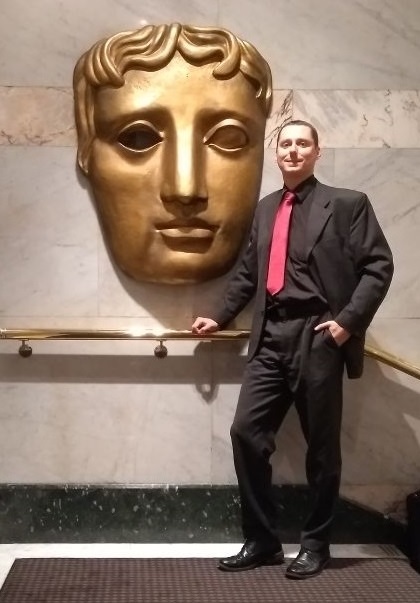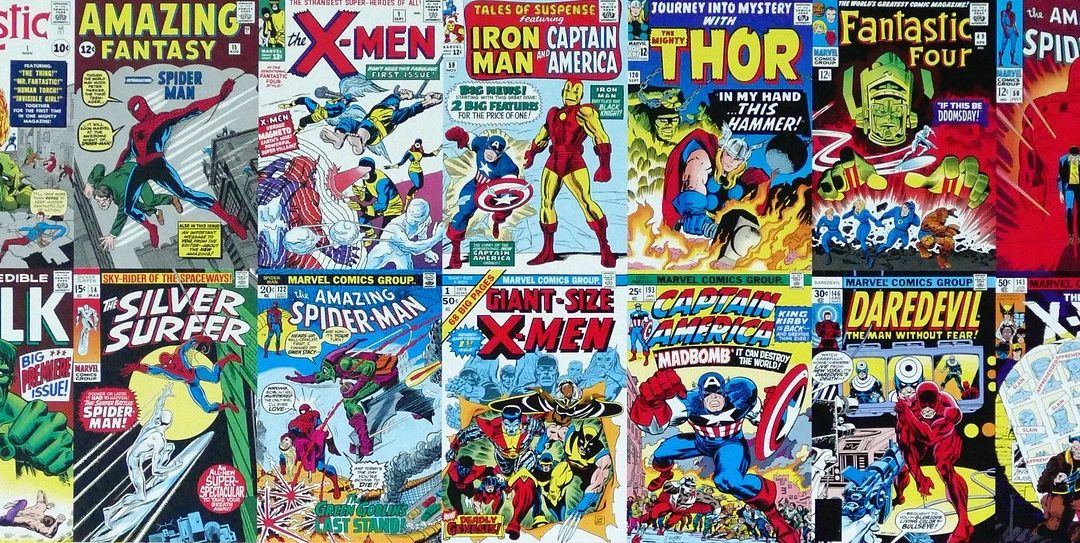
by John | Oct 16, 2023 | Ian Kennedy, News, Script Mentoring offers, WriteMovies News
It’s hard for anyone to process the scale and horror of events like the atrocities in Israel by Hamas, or genocide and ethnic cleansing, or the devastation caused by the invasion of Ukraine. But writers can play a vital role in helping us all process, and respond to, these unthinkable events when they happen.
Firstly, I’d like to state – on behalf of everyone at WriteMovies – our shock and revulsion at the attacks in Israel last week, and our heartfelt sympathy for everyone who has been affected by them or their consequences. My fear is that things are going to get a lot worse even than they are right now, for a much bigger number of people, over the weeks, months and years ahead, because of some of the factors I’ll talk about in this article. And I think writers do have the power to make some important differences in these situations, and I’d like to talk a little about that here.
Here are some principles for writers to consider about their role in the world and the influence that their work can have over world events. You’re welcome to respond to these and suggest others on our social media!
- Show us how we got here. Historical, biographical, or contemporary retellings of things that happened in the past are a vital insight into who and what we are today, and how we need to change for the future.
- Don’t let us forget the lessons of history. Find ways to reinvent and retell the stories that teach us the most from the past, for today’s and tomorrow’s audiences and obsessions.
- Don’t fall into lazy, familiar, safe views of the past that indulge and reassure us. Why create a faithful new adaptation of a familiar classic work, when you could be focusing on different angles within that world that speak to our modern views of that world? Or find other stories from that era which people then weren’t ready to tell about themselves?
- Don’t fall into the trap of treating anyone’s personal identities as more important than our shared humanity. That way lies tribalism, prejudice, war, and ultimately genocide.
- Avoid writing predictable ‘issue dramas’ that basically agree with everything we would already think about an issue, without teaching us why this thing happens or why we should look differently at it.
- Help us understand why people do ‘unthinkable’ things. Famous examples include: How can a responsible, ordinary person turn into a hardened, dangerous criminal (BREAKING BAD)? And, how can someone commit terrible criminal acts for their ‘job’ yet still try to be a good person for their family (THE SOPRANOS)? In the current crises, you could try to explain why Hamas doesn’t value life – their own, Israelis’, nor even their own people’s. Or how Russian rhetoric was describing Ukrainians as their ‘brothers’ in the run-up to the invasion – while their armed forces prepared to kill any of them who tried to stand up to oppression.
- See the bigger picture, and look further than people caught up in the crisis now will be able to. For example, here is an immediate reaction, one week after Hamas’ incursions into Israel in October 2023: the Hamas atrocities in Israel seem designed to show all Israelis and Jews that they will never be safe, and to provoke an extreme reaction in response. The reaction of Israeli forces to that has so far followed the pattern of previous attacks and hostage scenarios in that conflict very closely, but on a predictably bigger scale. Surely this is exactly what Hamas and their backers would have expected, and would have planned and prepared for? So if what Israel is currently doing, is also the goal of the attackers – who is actually winning? What will the longer-term consequences be as the rest of the world – Arab or not – reacts to what is happening in Gaza and beyond? Could this situation escalate far beyond its current focus – what if that’s exactly what Israel’s enemies are trying to bring about? And if so, how bad could things get for Israel and its allies, how quickly?
These are just a few of the ways that writers can add value to the world which can both recognize and help the situation, within and beyond any current crisis or recent shock. I hope they help you frame your own reaction to the many crises in the world, and to understand the part that you can play in helping us to address or prevent them in future. As ever, we would be very happy to mentor you further if this is something of interest to you – https://writemovies.com/script-mentoring/. But above all good luck, and if you or people you care about are caught up in these or any other crises, our sympathies are always with you.

by John | Jul 23, 2021 | Ian Kennedy, Writing Insights

Sanjay Dutt – Infamous Bollywood Actor
As more of us get the chance to discover Indian films on streaming services, WriteMovies’ Director Ian Kennedy explores these often lavish films to ask whether Hollywood should take Bollywood more seriously. He discusses the appeals of Bollywood films for English-language audiences, and asks whether Bollywood should take ITSELF more seriously to break through to the rest of the world now that PARASITE has shown that non-English-language films can triumph!
(more…)

by WriteMovies | Sep 18, 2020 | Highlights, Ian Kennedy, Industry Diary, Pitching, Writing Insights
We work with several established directors, such as double Oscar-nominee and double BAFTA-winner Habib Zargarpour, both as producers and as analysts. We get to consider works for them to direct, or for us to produce with them attached as director, or just to recommend they consider. Sometimes we’re sent books or scripts by writers’ agents or publishers, other times we’re considering the submissions to WriteMovies, other times we put a call out for something specific we think we could sell right now. So while assessing recent submissions from publishers, I thought we’d share thoughts about how to select projects for directors, producers or actors as clients… (more…)

by WriteMovies | Feb 8, 2019 | Highlights, Ian Kennedy, Writing Insights

Since it’s their results week too as we publish this, here’s a pic of Ian Kennedy, our Director of Worldwide Development, at BAFTA for a recent meeting with our founder Alex Ross!
Announcing results is the tough bit… especially at the Quarter-Final stage, where we have the most decisions to make, and the most people’s to disappoint about their writing submissions. At WriteMovies we make it our job to constantly open a door for writers and push their work to the next level, and take the ones that are ready into the international industry – but everyone is starting from a different place and whatever level a writer reaches they always have further steps to take to succeed and sustain themselves in the industry. To help you understand our logic and tips for how to make your work stand out to us, our Director Ian likes to write articles about “What Your Writing Has Been Telling Us” over this time. (more…)

by John | Nov 26, 2018 | Ian Kennedy, Updates, Writing Insights
Feature films tend to get most of the glory among filmmakers, but that doesn’t mean we should ignore short film as a medium! In a new series of Insights articles, Ian Kennedy looks at the benefits of writing in this format.
There’s a reason there’s not just one but two categories for shorts at the Oscars: one for live-action and another for animated. They can be a great way of telling stories that a lot of filmmakers overlook – and that includes writers!
So why write a script for a short film? Why get one made? Well, there are actually quite a few good reasons…
- You’ve got an idea for story that doesn’t suit feature length – sometimes, even the best concept can’t be spun out into a longer screenplay! That doesn’t have to a negative, though. Use the opportunity to tell the story in short form instead.
- To improve your skills by writing under constraint. All writing is done under constraint of some kind – of format, style, etc. – but the additional restrictions of length and budget with short film can be a great chance to prove yourself. Learning to write under constraint can actually be a great way to improve your writing!
- As proof of concept for a feature film. Making feature films is an expensive business, so why not show how well your idea works by making a short based on the same idea?
- To get a production credit. Getting a script produced can take hard work, but if you’ve already got a track record in short films, it can look great on your writing CV and give producer’s faith in your abilities.
- As a personal project – just because you love your idea or are passionate about filmmaking! Be careful, though; if you’re making a short film for personal reasons, make sure that everyone on the production knows what your motives are.
Making a short film brings all sorts of challenges of its own. You’ll still need a unique concept, a well-structured story, and characters that audiences can fall in love with – but you’ve got to get it all into a much smaller space! That’s why it can be such a great test of your skills as a storyteller.
Whatever your reasons for making a short film, make sure you know exactly what they are before you begin, whether you want to use it to take the next step in your career or just because you’ve got a story you’re desperate to tell!
Take a look at our other Writing Insights articles here for great hints and tips on crafting your scripts!

by John | Nov 16, 2018 | Ian Kennedy, Industry News, WriteMovies News
WriteMovies Director Ian Kennedy explores the works of Stan Lee and why superhero stories unleash our imaginations better than any other kind of stories…
At the heart of every superhero story is a central question that fires our imaginations every time, and nobody took it further than Stan Lee. The extraordinary array of well-known characters he brought into the world, which return again and again across many formats and platforms, is testament to that.
Cosmic stories like the creation of the universe are just too big to really relate to as stories, at least in the scientific telling – but many mythologies and religions make these stories relatable by ascribing these vast events to recognisably humanized figures. Gods like Zeus/Jupiter and Odin/Woden are presented like more powerful versions of human beings, able to shape the world with their powers and the sometimes arbitrary logic of their choices and lives; ancient heroes like Hercules and Beowulf are humans but given extra powers or significance. Superhero stories are clearly following in this tradition – and grasp towards almighty powers at times (DOCTOR STRANGE, CAPTAIN MARVEL, The Phoenix in X-Men).
By bringing these forces down (or up – SPIDER-MAN!) to our scale, we get to explore how people like us would act if they were capable of so much more than we are. It’s no coincidence that the modern superhero genre and many of its biggest characters have their origins in the Great Depression – when ordinary people were powerless against global economic forces. The flimsy justifications that the storytellers find for giving these figures their powers, are really just an excuse to let our imaginations run riot, and are quickly delivered and forgotten about in most of the origin stories, so that we can get onto the fun and exciting bit.
Nobody grasped the potential of these stories more, or took them further, than Stan Lee and the teams of writers and illustrators and filmmakers who he has worked with – the list of now-famous characters he created is vast. But at the heart of all these stories is just one very powerful central question, which is deceptively simple but really fires our imaginations. “What would you do if you could…?”
Superheroes and supervillains both play out these powers and their potentials and hazards throughout every story. Here are some of our favorites at WriteMovies from Stan Lee’s creations.
If you could… move and sling webs like a spider!
On the one hand, Peter Parker is just an ordinary teenager, worried about the same kind of things as any other teenager – on the other, he finds himself equipped with the awesome powers that make him SPIDER-MAN. We can all relate to his troubles at school while rooting for him to become a true superhero as he learns an important lesson: “with great power comes great responsibility”.
If you could… fly around in an armored suit!
IRON MAN’s Tony Stark is basically another Bruce Wayne, but with much quirkier personality. As an outright arms manufacturer, he’s also more morally compromised than Wayne. While Wayne has an orphan sob-story, Stark has an ego. And unleashing an ego that size, on a suit that powerful, creates excellent conflict throughout – so much so that in CAPTAIN AMERICA: CIVIL WAR, he can fight against many of our other heroes, without losing our empathy.
If you could… use you other senses to fight despite being blind!
DAREDEVIL has found immense success on Netflix, and with good reason. Matt Murdock is a deep, conflicted character, living in a world of darkness after being blinded as a child. With his other senses heightened, the Devil of Hell’s Kitchen is so captivating because he doesn’t just overcome his physical disability but turns it into a strength, proving that anyone – even someone who is blind – can become a superhero.
If you could… shrink to the size of an ant!
Scott Lang may be a former criminal, but his desire to reform himself makes us support him all the same. As ANT-MAN, he proves that even the smallest person can make a huge difference – and all while showing us a crazy world around us too small for us to even see!
Stan Lee has given us plenty of amazing creations over the years, and the world is a lesser place without him. Take a look too at our thoughts on two films based on his other superheroes, THOR: RAGNAROK and BLACK PANTHER!

by WriteMovies | Jul 23, 2018 | Ian Kennedy, Writing Insights
How to give Producers, Executives and Publishers what they say they want
If you haven’t already, check out Part One here!
In the first part of this article, Ian Kennedy wrote about how stories always show us an important aspect of life. Finding your voice as a writer involves recognizing the aspect you’re exploring and expressing it through the choices you make in your story…
 This is a key tool in focusing your script – to ensure that everything that’s in it shows clear choices by the writer which each reveal different, important and often subtle features of that aspect of life which they’ve decided to explore. What choices you make, and how you present them (i.e. your style, another little-understood word that is often used by producers, execs and publishers), gives your writing its voice.
This is a key tool in focusing your script – to ensure that everything that’s in it shows clear choices by the writer which each reveal different, important and often subtle features of that aspect of life which they’ve decided to explore. What choices you make, and how you present them (i.e. your style, another little-understood word that is often used by producers, execs and publishers), gives your writing its voice.
Here are some examples, they’re all just my own interpretations and summations of the stories mentioned but you’ll get the idea:
- “It’s about how life can be brutal and cruel.” This leads us to: “GAME OF THRONES explores a vivid fantasy world that is brutal and cruel, but where you can thrive if you’re tough enough, whether you’re a man or a woman.”
- “It’s about how life can be threatened by chaos and injustice.” This leads us to: “BATMAN battles a world where criminals and injustice threaten to turn our civilization to chaos.”
- “It’s about how life can be determined by what’s in your heart.” This leads us to: “STAR WARS is about how even the biggest cosmic battles come down to the goodness or darkness in people’s hearts.”
- “It’s about how life can be trapped in eternal childhood for some people.” This leads us to STEPBROTHERS, and other comedies.
- “It’s about how having the biggest brain doesn’t always make life easier.” THE BIG BANG THEORY.
- “It’s about how some people have special abilities or powers and have to decide how to use them right.” – Any superhero story. (Technically, Batman doesn’t have any superpowers, but hey, he’s rich and runs a huge tech-innovation company, so that’s the next best thing.)
For me, it’s both the choice of the aspect of life they want to explore, and the way that they then go on to explore it, which gives the writer their “voice”. Make a conscious choice about the aspect of life you want to explore, the many forms it takes and how you can dramatize those in a way that feels convincing (within the internal logic of your story world – even if that’s a silly or surreal one like MONTY PYTHON), and show how that aspect of life creates dilemmas and issues with important repercussions for your characters and their story world, which you can resolve in a way that shows your conclusions about these questions, and give us an answer we can go away with. As McKee explains, it could be a “This means that this”, a “This means that this, but also means this”, etc.
So for choosing your ending, this comes down to the ‘moral of the story’: your ending should reflect the message and new understanding you want us to take away from the story about life, particularly about ‘life in a world like the one we see in this story’. A message like, “in a world like this, hope always triumphs” or “in a world like this, hope is an illusion”. And you should focus your story on exploring all the features of the aspect of life you’re exploring, and bring us to a conclusion that’s both dramatically, emotionally, and intellectually satisfying conclusion which gives an answer to the big questions you’ve asked.

I believe that all great writing teaches us something about the world, that we didn’t already know or hadn’t understood in this way before. That’s why we want to live out alternative lives through characters and worlds that – if we’re honest – we’d run a mile away from ever having to live as. From their struggles and dilemmas, we take back lessons that enrich and inform our lives, for the better. Even grim stories, enrich our understanding of life for the better, and help resolve us not to let our world turn out that way.
In all of this, the writer’s voice is revealed, and proves itself to be unique. So. Focus your writing on what I’ve explained here, and as you’re applying it to every passage of your work, ask yourself whether your telling of this is fully convincing. Because that’s then the main obstacle to getting greenlit, once you’ve found your voice and proven yourself as a writer.
Develop your voice as a writer with even more in-depth advice from an industry expert: check out our Elite Mentoring and script development services!









